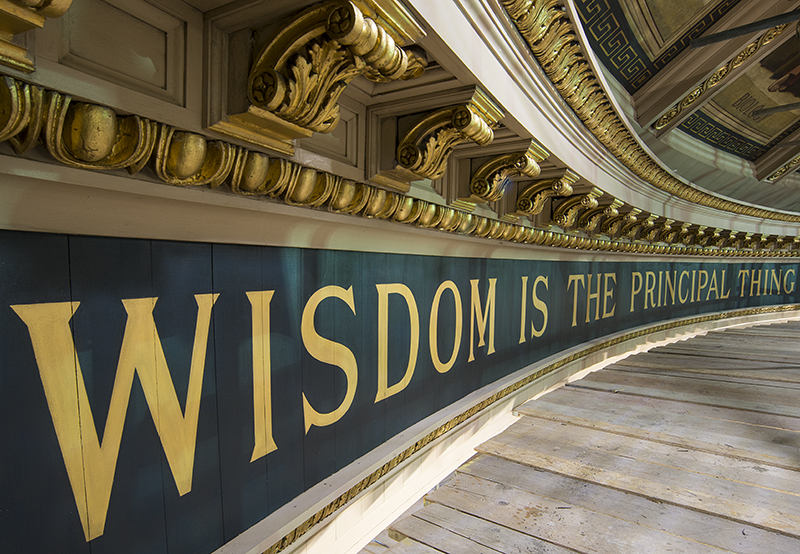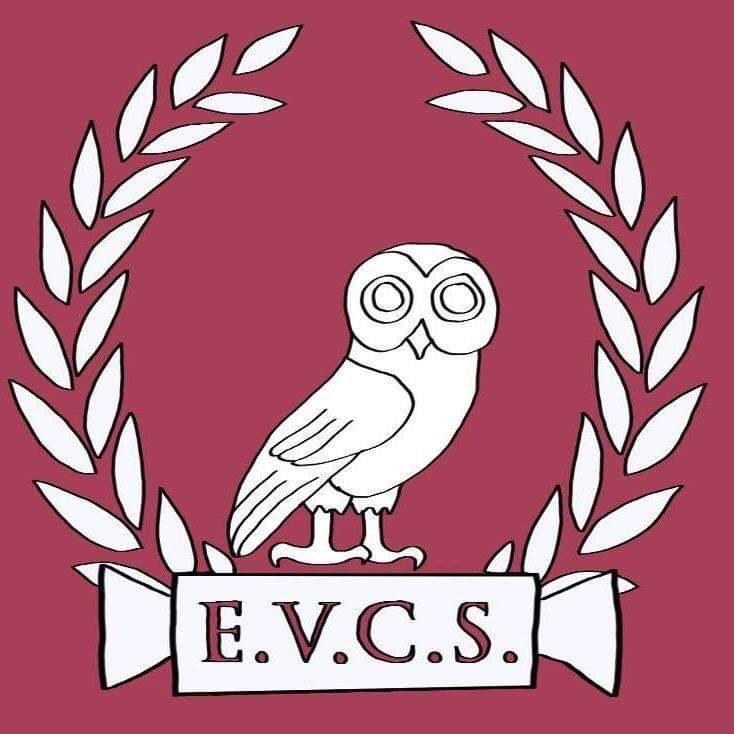
By Dr. Alex Imrie
My route into Classics is one that has been deemed ‘non-traditional’ by some. I never had the chance to try ancient languages or Classical Studies at school; and beyond a unit on the Romans in Primary 5 and a couple weeks on the Egyptians in secondary school, I didn’t get to study any ancient history either. My interest in antiquity was nevertheless present from an early age, spurred by two distinct inspirations: watching films like Jason and the Argonauts and Spartacus with my parents, and the fact that my grandfather became a porter with the National Museum of Scotland in my hometown of Edinburgh in the years before his death. I spent nearly every weekend of my early years in the museum, finding out about some object or another.
Despite this interest, I didn’t know about the existence of Classics as a distinct discipline until I reached university. I had arrived as a student enrolled in French (the subject I’d been best at in school) although, beyond a vague notion of becoming a translator, I wasn’t sure what I wanted to get out of my university experience. I was the first in my working-class family to stay on at school and thus I had no frame of reference regarding what to expect in higher education.
I remember the moment which set me on the path to becoming a professional classicist vividly, when I chose Ancient History as an elective course in my first year. Looking back, I am relieved that I went with my instinct and subject passion rather than doing what so many first-gen and marginalised students do, which is to try to craft a degree on what they are told is ‘useful’. Within the space of a year, I’d changed my Honours specialisation to Ancient History and never looked back, graduating in my new degree subject in 2007.
By the time I’d graduated, I knew categorically that this was the discipline in which I wanted a career. There followed a couple years working in retail (selling kilts, no less!) to support my wife through the final year of her medical degree and to raise money for me to commence postgraduate study. I started a Masters by Research programme in 2009, since I was aware already that I wanted to apply for a doctorate, but was terrified at the prospect of writing to such a volume. The MScR programme I undertook was fantastic for proving to myself that I did have ideas and that I could write to scale, but it also gave me the flexibility to start a steep learning curve with the ancient languages.
After completing the Masters, I was lucky enough to secure funding to support my moving on to the PhD immediately. The years of my doctorate were some of the most challenging and yet rewarding that I have ever experienced. If I lacked a frame of reference for my undergraduate degree, it’s fair to say that for a sizeable portion of the PhD I felt similarly out of place: impostor syndrome, which has stalked me for many years, was at its most brutal during this period. With the love and support of friends, family, excellent colleagues and stalwart advisors, however, I endured. Graduating in my doctoral robes remains one of the proudest moments of my life, showing that a boy who had grown up watching Spartacus and playing Rome: Total War could have a voice in a discipline that seems to many as being designed to be impenetrable to those with a just such a background as mine (and many others even more so).
It is in part that realisation which has informed much of my work and professional effort since graduating in 2015. In my research, I endeavour to use language in as simple a way as I can, so that my work is accessible to people regardless of how long they have been submerged in classical scholarship. It pains me to see interested people turned off by writing that is unnecessarily complex or wilfully pretentious. My research concerns the history of the Severan Dynasty: one of the most dysfunctional families to ever occupy the Roman imperial throne (and that is saying something!) If I cannot render this period exciting and accessible to anyone who might want to know about it, then I’m failing as an academic.
I am similarly motivated when it comes to teaching. I was fortunate enough to be taught by several lecturers who are excellent at their craft, and so I aspire to engender the same level of engagement I felt as a student in their classes. Classics is a subject which should inspire and challenge in equal measure. It is full of enthralling stories but would probably have been utterly horrendous to have lived through for many. The ancient world is simultaneously familiar and completely alien on a human level. The discipline is valuable in that it offers (among other things) a lens and filter to discuss subjects and issues which have real contemporary relevance, and yet the discipline itself is plagued by its own historical inequities and more recent misappropriations, both of which require to be challenged openly and robustly. For these reasons and more, the subject is a privilege to teach and a responsibility I take very seriously.
Dovetailing some of these themes together, some of my most important work over the last three years has been in the field of Classics outreach. In Scotland, Classics in schools imploded in the 1980s, and was at real risk of disappearing from the curricular map altogether, were it not for the stubborn ingenuity of teachers keeping the subject alive in a handful of state centres. In late 2017, I took up the position of National Outreach Co-ordinator with the Classical Association of Scotland, in partnership with the charity Classics for All. Since then, we have successfully brought Latin or Classical Studies to around 50 schools nationwide, with others preparing themselves to join our growing network. With each passing month, we are proving that there is an appetite out there for the ancient world, be it spurred by Percy Jackson and Horrible Histories, or simply by the enduring draw of subjects like classical mythology.
We have also been active with initiatives designed to render the ancient past accessible to as wide an audience as possible: running free online sessions through the COVID lockdown period, and offering friendly and accessible summer language programmes designed to fit in with work, childcare and other life responsibilities. I want our global Classics community to be more than simply those who win the crapshoot of securing permanent positions in self-styled ‘elite’ universities.
For me, this is something of a mission, bringing my personal and professional journeys within Classics almost full circle: offering young learners at primary and secondary levels an opportunity to engage with the subject I was denied the chance to experience as a child, in the hope of enthusing a new generation of classicists in Scotland who don’t feel ‘other’ or out of place if they decide that they want to pursue the subject further. We are still at the start of a very long road if we are to see Classics become a legitimate subject option for the majority of Scotland’s pupils but, in spite of the difficulties and issues we face, I remain dedicated to the cause and remind myself that Rome wasn’t built in a day, after all…
